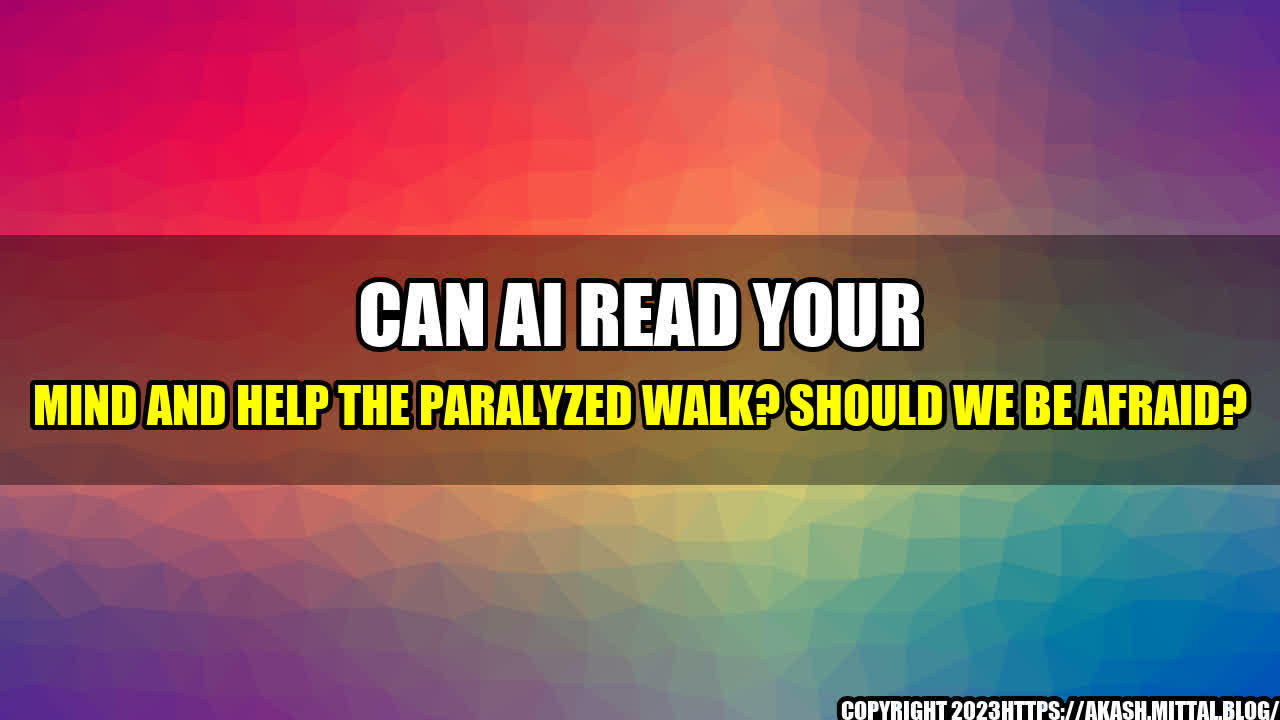When John, a 30-year-old man from New York, lost the ability to walk after a car accident, he thought his life had ended. He couldn't move his legs or feet, and he had to depend on others for his daily activities.
But one day, he heard about a new technology that could help him walk again, even though he was paralyzed. The technology was called Brain-Computer Interface (BCI), and it used artificial intelligence (AI) to read the signals from his brain and translate them into commands for a robotic exoskeleton.
John was skeptical at first, but when he tried the exoskeleton for the first time, he couldn't believe it. He stood up from his wheelchair and started walking, one step at a time. It was like a miracle.
Now, John is not only able to walk again, but he's also able to control the exoskeleton with his mind. He thinks, and the exoskeleton moves. He can even climb stairs and dance with his wife.
John's story is just one example of how AI is changing the lives of people with disabilities. But should we be afraid of this technology?
- According to the World Health Organization, there are more than one billion people with disabilities around the world, and many of them could benefit from AI technologies.
- In 2019, a team of researchers from the University of California, San Francisco, and Stanford University, developed an AI system that could decode the signals from the brain and turn them into speech, allowing a man with paralysis to communicate in real-time.
- Another study from the University of Pittsburgh showed that a paralyzed man was able to control a robotic arm with his mind, using an implanted device that could read his brain signals.
Should We Be Afraid of AI?
Despite the amazing benefits of AI, many people are still afraid of this technology. They fear that AI will take over their jobs, invade their privacy, or even become a threat to humanity.
However, these fears are mostly unfounded. AI is just a tool, and like any tool, it can be used for good or bad purposes. It's up to us to ensure that we use AI responsibly, ethically, and for the benefit of all.
Conclusion
- AI technologies like BCI, neural implants, and exoskeletons, have the potential to transform the lives of people with disabilities.
- AI is not inherently good or bad, but it depends on how we use it. We need to ensure that we use AI ethically, responsibly, and for the benefit of all.
- Instead of being afraid of AI, we should embrace this technology and work towards a future where everyone can benefit from it, regardless of their abilities.
References
- World Health Organization Report on Disabilities
- Real-time decoding of speech using neural prosthetic devices
- A brain-implantable neural prosthetic for augmenting naturalistic tactile perception
Hashtags
- #AI
- #ArtificialIntelligence
- #BCI
- #BrainComputerInterface
- #Disabilities
- #Paralysis
- #Exoskeletons
Category
Science & Technology

Curated by Team Akash.Mittal.Blog
Share on Twitter Share on LinkedIn